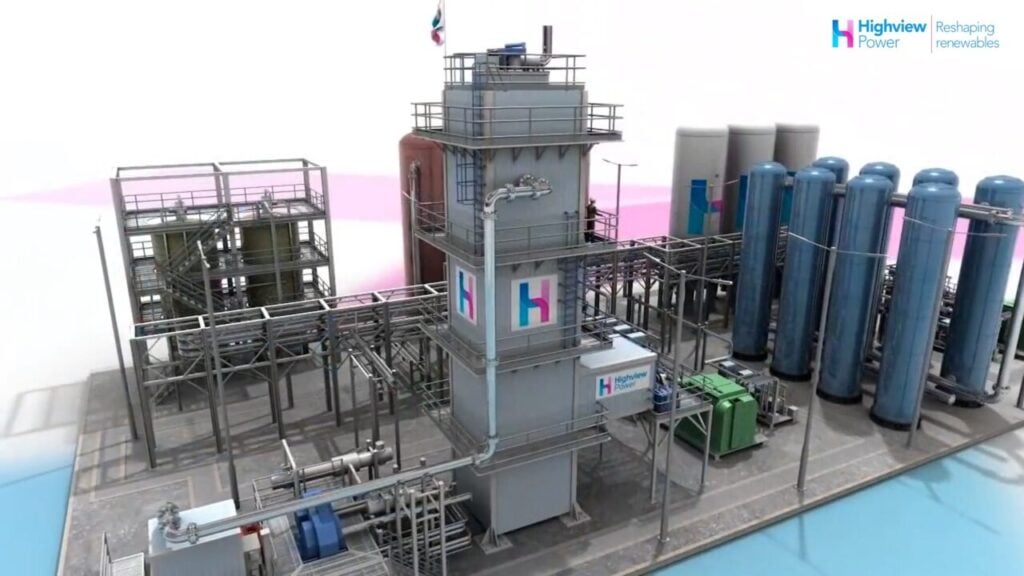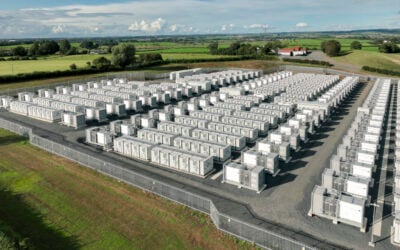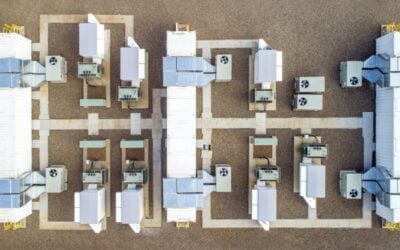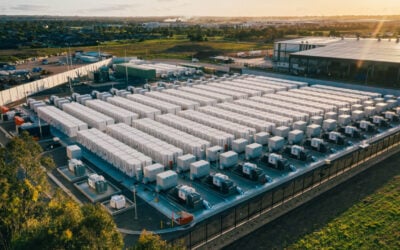
Liquid air energy storage firm Highview Power has raised £300 million (US$384 million) from the UK Infrastructure Bank (UKIB) and utility Centrica to immediately start building its first large-scale project.
The funding will enable Highview to launch construction on a 50MW/300MWh long-duration energy storage (LDES) project in Carrington, Manchester, using its proprietary liquid air energy storage (LAES) technology. Construction will start immediately for an early 2026 commercial operation, the company said.
The funding round was led by the state-owned UKIB and utility Centrica, with participation from mining firm Rio Tinto, bank Goldman Sachs, private equity firm Mosaic Capital and KIRKBI, the family office of the Lego-founding Kristiansen family.
UKIB mobilises private finance to help first-of-a-kind technologies, including those for the energy transition, to reach commercial scale whilst driving local economic growth. Centrica, meanwhile, has come on board as Highview Power’s strategic partner and contributed £70 million of the £300 million.
Try Premium for just $1
- Full premium access for the first month at only $1
- Converts to an annual rate after 30 days unless cancelled
- Cancel anytime during the trial period
Premium Benefits
- Expert industry analysis and interviews
- Digital access to PV Tech Power journal
- Exclusive event discounts
Or get the full Premium subscription right away
Or continue reading this article for free
Highview will also now start planning its next four larger scale facilities totalling 2.5GWh requiring £3 billion of investment in line with the UK’s support mechanisms and forecasted required deployments of LDES.
Meeting support mechanism requirements
The support mechanism for LDES currently being discussed is a cap and floor mechanism for projects of a minimum size and duration – 300MWh and six hours – that exactly matches Highview’s, suggesting the project has been built with an eye on bidding for support via the scheme. Highview said its technology can store renewable energy for up to several weeks, indicating its duration could go beyond several hours.
The company has had a smaller-scale 5MW/15MWh project operational, also in Manchester, since 2018. It first revealed plans for a large-scale project in Carrington in 2019 which the then-CEO told Energy-Storage.news would start construction the following year.
The UK already has a substantial fleet of over 4GW/4GWh of short-duration, 1-hour and 2-hour lithium-ion BESS projects online, which are primarily providing ancillary services and some grid balancing and energy trading activities.
But many in the industry suggest that as renewable generation grows, the gigawatt hours of capacity will need to grow far beyond what is financially cost-effective with just lithium-ion BESS.
UKIB also recently invested £25 million into another LDES company, vanadium redox flow battery (VRFB) firm Invinity Energy Systems, for it to expand manufacturing and start directly investing in projects using its tech.





